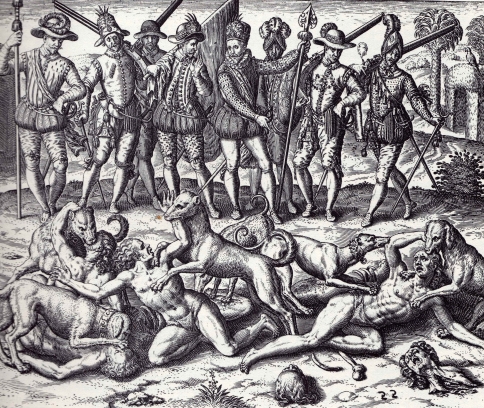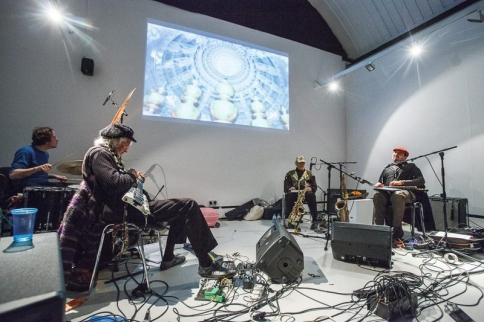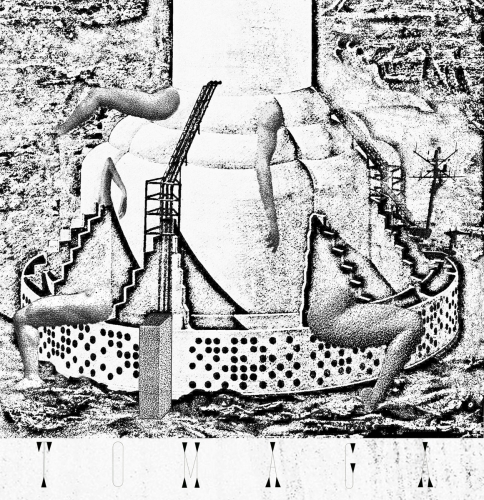Blogging about some of the things happening at Wysing, or influencing what happens at Wysing.
Archive: March 2015
50 Million Indians 20 March 2015

Wow, seems like my entry of 12 March wasn't so way off other thinking happening at the moment, though this position is very different, horrific in fact. An interesting article, and shocking in terms of the scale of the genocide - "Did the Deaths of 50 Million Indians Cause Climate Change?" Full article here.
Tags: anthropocene |
The Uncanny Valley 14 March 2015
Tags: creepy | theuncannyvalley |
We Are All Gong 14 March 2015

Sad that Daevid Allen founder of Gong and Soft Machine has died. We need the gentle souls like him to stay around. Here's the amazing notification of his death, by his son Orlando...
"And so dada Ali, bert camembert, the dingo Virgin, divided alien and his other 12 selves prepare to pass up the oily way and back to the planet of love. And I rejoice and give thanks,” he wrote. “Thanks to you dear dear daevid for introducing me to my family of magick brothers and mystic sisters, for revealing the mysteries, you were the master builder but now have made us all the master builders. As the eternal wheel turns we will continue your message of love and pass it around. We are all one, we are all gong. Rest well my friend, float off on our ocean of love. The gong vibration will forever sound and its vibration will always lift and enhance. You have left such a beautiful legacy and we will make sure it forever shines in our children and their children. Now is the happiest time of yr life. Blessed be."
Daevid Allen played at Wysing in Arpil 2013 alongside his friends James Harrar, Rogier Smal and Marshall Allen of the Sun Ra Arkestra. They were all really nice, funny and kind. The Arkestra are in fact are playing at Islington Assembly Hall in a couple of weeks.
Tags: untagged
Tomaga 12 March 2015

In between all this thinking about the future of planet earth I've been listening to a lot of music and will soon be announcing the initial line-up for our music festival which this year is on 5 September. Some of the people I have been talking to are mentioned in this blog - click the tag spacetime15. And check out Tomaga's bandcamp page, here, for some experimental/drone/free jazz/ industrial/ modular synth/ noise! It's going to be another good one I think, focussing on altered states and multiple identities.
Tags: spacetime15 |
Dreamtime 12 March 2015
I've been thinking about the Sonic Acts conference that I went to a couple of weeks ago and which has had a lot of criticism for including contributions from 75 men and only 7 women, and for not allowing any dialogue at all from the audience who were actively discouraged from asking questions. I found both of these issues deeply frustrating and in a way kind of summed up the whole problem with dealing with the question of The Anthropocene. The first talk at the conference was an informative lecture by geologist Mark Williams on how human civilisation has impacted on earth’s geology. The most striking thing about this talk was that the history he described was that of western civilisation, led of course by white men, obliterating elements of the natural world and dominating and destroying indigenous populations in the pursuit of 'progress' or religious dogma. I’ve been thinking about the discussion around when this period The Anthropocene started (see previous blog entries), with some scientists declaring the start during the 1940s - when it began to be noted that things were going wrong with planet earth - and others saying it started with the industrial revolution and others insisting that it started when the first human created a tool. But what if The Anthropocene started with Columbus’s voyages to the Americas? Or Europe's ruthless suppression of the peoples of sub-Saharan Africa and the Pacific islands? In other words, when white European men ended a period in human history where indigenous populations lived in accord with the natural world. In a conference that was dominated by white European and American men, those of us who were there to find answers - or at least a shared recognition that we all play a part in doing something to improve things for future populations - were left feeling disappointed by a missed opportunity. Although that disappointment has inspired action, at least for me anyway. If we are to re-think the future in any meaningful way, maybe it’s time to look again at what we lost during that period when those alternative ways of living with nature were decimated. They are still on this planet, just about, those people who believe in the Dreamtime, and others like them.
Tags: anthropocene | dreamtime |
Re-thinking The Future 9 March 2015
So, in the last couple of months I've joined the Green party and taken part in a protest march about climate change. I've never joined a political party before so it was a definite decision to move away from mainstream politics towards something that isn't soley about preserving an outdated capitalist model. And, being based rurally, I’m lucky enough to see wildlife, experience weather and the changing seasons, and see beautiful star-filled night skies and so feel very close to nature. Plus last year at Wysing we hosted five seminars looking at what the future might hold from five positions – politics, education, ecology, digital and gender. Across all symposia the relentless message was that there wouldn’t be much of a future unless we collectively addressed the issue of climate change. The reason I suggested the subject of The Multiverse for this year’s programme was to move away from this end-view position towards something more hopeful – the prospect that out there might be other universes that hadn’t yet been wrecked by the human species was an oddly consoling thought; that maybe in other worlds we had taken better decisions. However, at our very first event last month the issue of the Anthopocene emerged again; the proposed period that we are now in, where humans have measurably, and potentially catastrophically, altered the earth’s biosphere. A couple of weeks ago I attended an event in Amsterdam that grappled with the subject in a conference that included scientists, writers, philosophers and artists. People talked about the Anthropocene being the next great period of extinction for planet earth. And about how we have to get used to the idea that the earth is no longer a passive backdrop to be plundered, but that it has become a volatile environment that is fighting back. It’s difficult to recount everything that was discussed at the conference, which at the time and since has been heavily criticised for it's almost exclusively male delivered content, but one message came across loud and clear; that future planet earth will be unrecognisable, with volatile weather conditions and some species extinction. And it may be that eventually the machines and AI take over. But it’s not too late to stop the scale of this change. It seems that it’s time that we had a collective hard think about what we want the future to look like and accept that relentless growth, innovation (and exploitation) is not going to work anymore. That it really is time to re-think absolutely everything; a chance to make things better maybe.
Tags: anthropocene |
Archive
Tag Cloud
wysingpolyphonic wysingpoly thewaywelivenowliveblog thewayweactnowliveblogtext theuncannyvalley spacetime15 spacetime14 spacetime13 radio publicvsprivateliveblog nottingham contemporary mike hadreas gustav metzger elizabeth price apostgenderworldliveblog anthropocene alternativemethodsliveblog alfred tarski #ophiux #joeyholderreadinglist